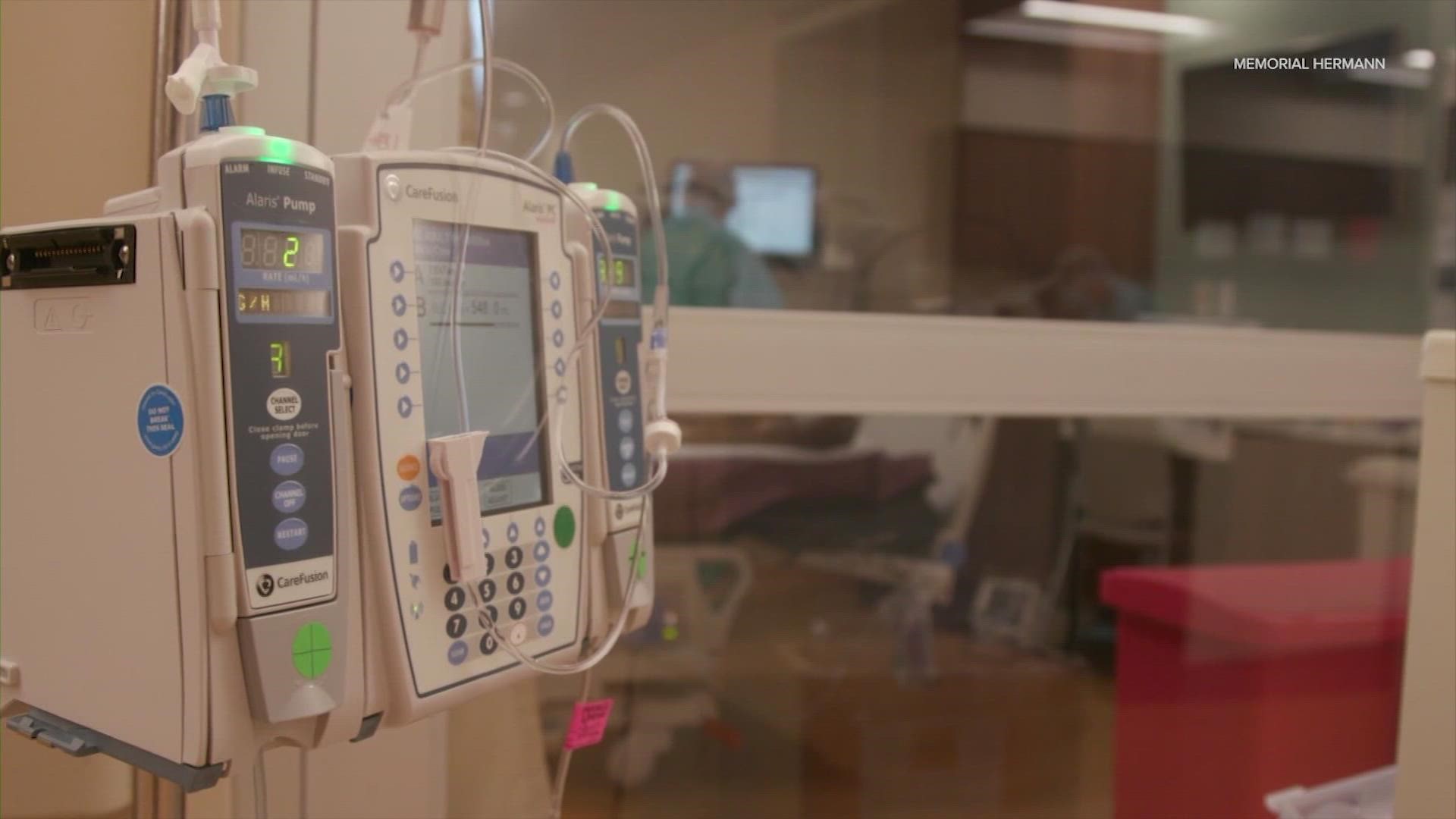The pandemic has been incredibly deadly, and COVID-19 isn’t the only reason.
The number of people dying from many different diseases - including diabetes, high blood pressure, and Alzheimer’s disease – has been way up since January of 2020. Doctors and researchers call these excess deaths.
The CDC is routinely releasing excess mortality data, which reveals details of the troubling trend.
“There are a lot more people who died than otherwise would have,” said John Mulligan, a humanities computing researcher at Rice University.
Mulligan analyzed death data released by the CDC and created an online app that shows how many people have died since January of 2020 and how that compares to the average number of deaths for a certain illness. The information is broken by disease and location.
Looking at specific illnesses, the app shows the average number of people who died each week with that disease between 2015 and 2019. It also shows how many people actually died each week since January of 2020.
The number of “extra” deaths since the pandemic began is staggering.
Just in Texas, there have been 3,365 excess deaths from diabetes, 4,150 from hypertension, and 6,673 excess deaths from Alzheimer’s Disease.
“That necessarily begs the question: Are these deaths that would have happened were it not for COVID? Then one has to ask oneself, are we undercounting the impact of COVID on our society?” said Mulligan.
Mulligan says there are several possible explanations for the increase in deaths during the pandemic. One is that hospitals have been overtaxed, so some people aren’t getting the treatment they need in a timely manner. Others are avoiding doctors and hospitals altogether due to COVID-19 fears.
“People are dying as a result of overdoses, not getting the treatment they need because hospitals are overwhelmed, and the aftereffects of COVID,” said Mulligan. “The impact of this pandemic – as we all know from our personal lives – stretches well beyond simply contracting the disease. That’s saying something given how impactful the disease itself has been.”

